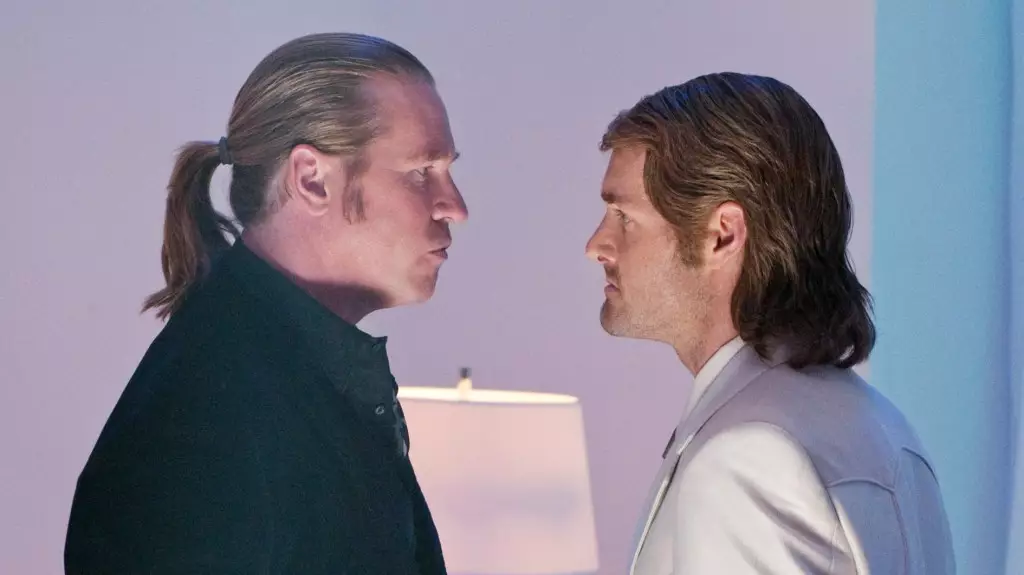The unexpected friendships that blossom in the world of Hollywood often provide a redemptive quality to the cutthroat nature of the industry. Will Forte and Val Kilmer’s camaraderie following their work on the film adaptation of “MacGruber” perfectly embodies this notion. Their relationship didn’t just yield a comedic film that parodied high-octane spy dramas; it became a transformative period in their lives. As Forte reflects in a candid essay, the layers of nostalgia and regret surrounding their friendship highlight both the joys of shared experience and the painful “what-ifs” that linger long after the credits roll.
In the realm of celebrity friendships, there’s an inherent irony in their construction. The same universe that brings people together often orchestrates their separation. Forte, in his musings, reveals a vulnerability when discussing his regret about not taking the plunge to participate in “The Amazing Race” alongside Kilmer. This sentiment speaks to a broader truth: that life’s most enriching adventures often slip through our fingers due to societal constraints or fear of failure. Here, Forte’s reflection transcends a simple missed opportunity; it taps into the universal human experience of yearning for connection and adventure.
Emotion Beyond Laughter
The beauty in Forte’s recounting is not just in the laughter it elicits but in the deeper emotional resonance that lingers throughout. After sharing a living space and countless inane TV moments, the bond that developed underscores the poignancy of flawed humanity that pervades popular culture—and, indeed, real life. Despite initially dismissing “The Amazing Race” as “garbage,” Kilmer’s eventual enthusiasm encapsulated a spirit of adventure that belies the usual image of a Hollywood superstar.
As the curtain fell on Kilmer’s life, his struggles with health issues brought about a somber reflection on how precious time is. The irony here is stark: while they shared fleeting moments together, the specter of mortality loomed over the narratives they crafted. Forte’s wistfulness serves as a reminder of the fragility of our connections and how they often serve as lifelines in otherwise turbulent seas. This essay crystallizes the raw emotions that accompany personal loss, urging readers not only to appreciate their friendships but also to act on opportunities before life takes them away.
A Legacy of Laughter Colored by Regret
Val Kilmer’s death at the age of 65 stirs powerful emotions that extend beyond the realm of celebrity to touch the raw nerve of universal human experience. It underscores the reality that life is not only about achievements but also about the relationships we cultivate along the way. Forte’s keen desire to experience life with Kilmer, albeit vicariously through a game show, serves as a potent metaphor for all those similarly looking back at their lives with both joy and sorrow.
The notion that the two would have likely fared poorly on the reality show speaks to the imperfection of human endeavors. Yet, it is precisely those imperfections that create the tapestry of human experience—laughter and triumph intertwined with mistakes and missed opportunities. In a world driven by a relentless pursuit of success, Forte’s insight invites an introspection that many would do well to heed: the real win is often found in the companionship and adventures, no matter how trivial they might seem at the time.
The intertwining trajectories of Forte and Kilmer remind us that connection is a potent elixir, capable of enriching our lives far beyond accolades and fame. In celebrating these bonds, we recognize the significance of empathy, friendship, and the journeys we are willing to undertake together—even if it’s just in front of a television.


Leave a Reply